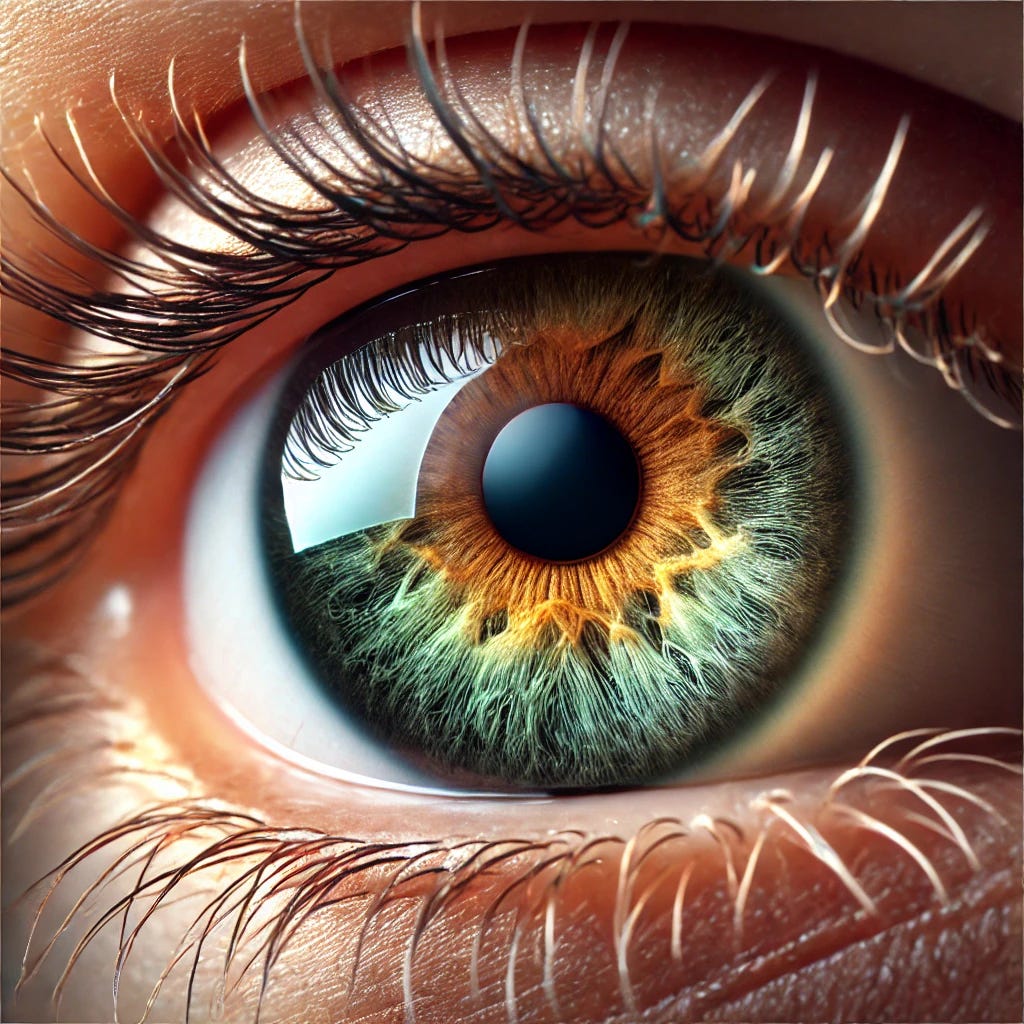A Holistic Ophthalmologist’s Insight into the Two Faces of Macular Degeneration
Please hit the ❤️ at the top or bottom of this email to help others discover All About Vision With Dr. Kondrot. Your subscription directly supports my ongoing humanitarian work—delivering free eye surgeries and care where it's needed most.
STORY AT A GLANCE
Wet age-related macular degeneration (AMD) progresses more rapidly and aggressively than dry AMD, often leading to sudden and severe central vision loss.
Wet AMD is caused by abnormal blood vessel growth and leakage under the retina, while dry AMD involves gradual degeneration of retinal cells.
Early detection is critical—wet AMD can damage vision in weeks or months, whereas dry AMD typically evolves over years.
Understanding the biological differences, symptoms, and treatment strategies is key to preserving vision.
A holistic approach that includes antioxidant support, inflammation control, and metabolic health can slow progression and protect retinal function.
👁️ Wet vs. Dry AMD: What’s the Difference?
Age-related macular degeneration (AMD) is a chronic eye disease that affects the macula, the central part of your retina responsible for sharp, detailed vision. AMD comes in two forms:
🔹 Dry AMD (Atrophic)
Accounts for ~85–90% of AMD cases
Caused by gradual breakdown of retinal pigment epithelium (RPE) and accumulation of drusen (waste deposits)
Progresses slowly over years
Central vision deteriorates gradually
🔹 Wet AMD (Neovascular or Exudative)
Accounts for ~10–15% of cases
Occurs when abnormal blood vessels (choroidal neovascularization) grow beneath the retina
These vessels leak blood or fluid, causing rapid damage to the macula
Can lead to sudden vision loss in days or weeks
Despite being less common, wet AMD causes the majority of severe vision loss related to macular degeneration.
⏱️ Why Wet AMD Progresses So Much Faster
1. Leaky Blood Vessels Cause Immediate Damage
The hallmark of wet AMD is new, fragile blood vessels growing beneath the retina. These vessels leak blood, plasma, and proteins, causing swelling and scarring of the macula.
Unlike dry AMD, which slowly wears down retinal cells, wet AMD causes direct mechanical and inflammatory trauma to the central vision area.
2. Scarring Can Form Quickly and Permanently
Once fluid or blood damages the retinal layers, the body responds by forming fibrotic scar tissue. This scarring irreversibly disrupts central vision—often before treatment can begin.
3. VEGF Overexpression Drives Rapid Vessel Growth
In wet AMD, the body overproduces vascular endothelial growth factor (VEGF) to compensate for retinal stress or hypoxia. VEGF stimulates abnormal blood vessel growth, accelerating the disease cycle.
4. Sudden Symptoms Lead to Late Diagnosis
Wet AMD may not give early warning signs. Many patients notice vision loss only when damage is already significant, making early detection difficult without routine exams.
🔬 The Underlying Drivers: What Triggers Wet AMD?
Oxidative stress from aging, UV light, smoking, or poor diet
Chronic inflammation within the retina
Poor retinal circulation or oxygenation
Genetic mutations in CFH or ARMS2 genes
High levels of VEGF from retinal hypoxia or breakdown
The shift from dry to wet AMD often occurs when oxidative and inflammatory damage reaches a tipping point, leading to neovascularization.
✅ Key Differences at a Glance
Feature Dry AMD Wet AMD
Type Atrophic (cell death) Neovascular (leaky blood vessels)
Progression speed Slow (years) Fast (weeks to months)
Common symptom Gradual blur, drusen Sudden distortion, blind spots
Risk of severe vision loss Moderate High
Treatment Lifestyle + AREDS2 + holistic care Anti-VEGF injections + holistic care


